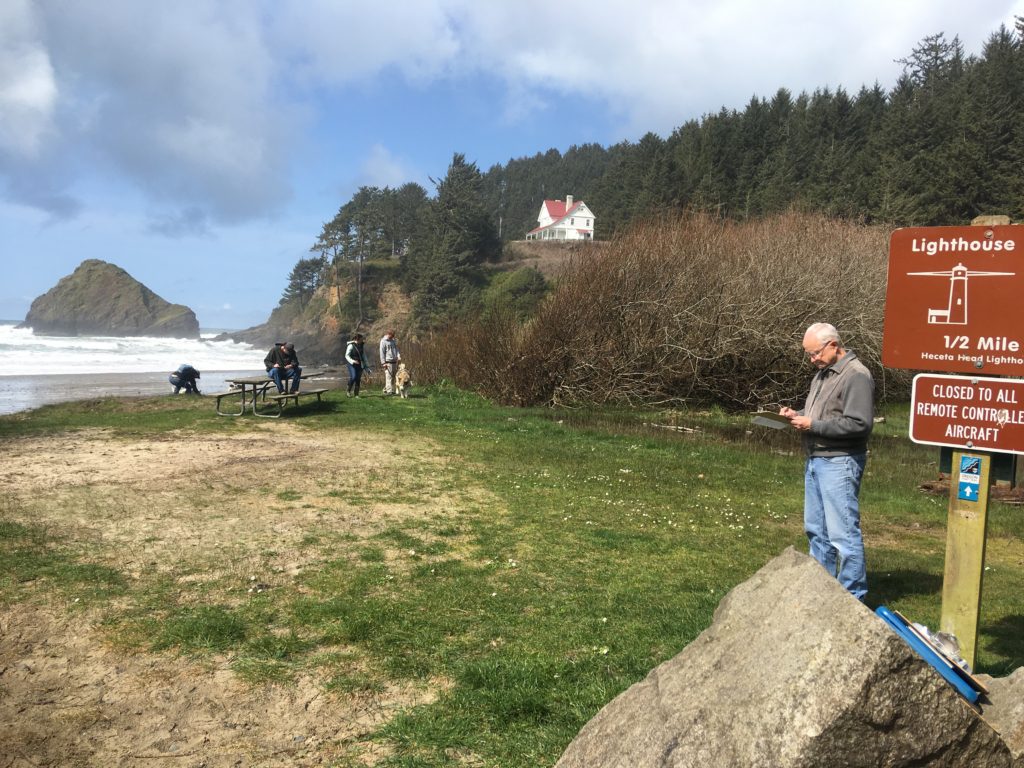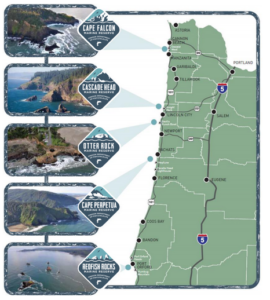
By DANA TIMS/YachatsNews
Traditional economic surveys are usually very straightforward.
If you want to know how workers are employed in Oregon’s salmon-fishing industry, for instance, all you need to do is track down the employers and report the numbers.
Now, a first-of-its kind survey is attempting to assess how state residents view the non-economic values and benefits of Oregon’s Marine Reserves program.

“What we’re doing is pretty ground-breaking,” said Tommy Swearingen, the Marine Reserves program’s human dimensions project leader. “Subjective well-being has never been part of the equation.”
However, widespread interest in the topic has surprised even long-time program managers. A news release outlining the survey, posted recently on the Oregon Department of Fish and Wildlife’s website, garnered more than half a million views.
“I had no idea the interest would be so great,” Swearingen told YachatsNews. “We certainly consider that noteworthy.”
The Oregon Legislature enacted the Marine Reserves program in 2009. The five reserves, along with nine marine protected areas, cover nearly 10 percent of Oregon’s nearshore ocean waters. No plants or animals can be removed from the reserves, according to state regulations, and all development is prohibited.

The five reserves are Cape Perpetua, which is Oregon’s largest reserve stretching from Yachats to Florence; Cape Falcon, north of Manzanita; Cascade Head, north of Lincoln City; Otter Rock, off Beverly Beach State Park; and Redfish Rocks, south of Port Orford.
Efforts to measure the respective areas’ non-economic benefits are being conducted by faculty from Oregon State and Utah State universities. Survey participants will be asked questions aimed at determining how they think various scenarios affect their well-being.
The study’s results are designed to reflect a metric similar to a “National Happiness Index,” which are measures of the collective happiness and well-being of a country’s population. The subjective well-being study will attempt to quantify concepts of awareness and knowledge about Oregon’s marine reserves.
A limited, Internet-based survey will commence sometime within the next two weeks, said Mark Freeman, an ODFW communications specialist. Results of that effort will then inform the design of a larger survey, which will begin this fall.
Swearingen said the random sample in the final survey will involve at least 1,200 Oregonians. Half of those, drawn from Oregon Department of Motor Vehicle records, will receive subjective well-being questions. The other half of respondents will get questions in a more conventional form of economic survey.
“Oregon should be very proud of the protections we provide the beach in general,” he said, adding, “The amount of research that marine reserves have generated is just astonishing.”
- Dana Tims is an Oregon freelance writer who contributes regularly to YachatsNews.com. He can be reached at DanaTims24@gmail.com


